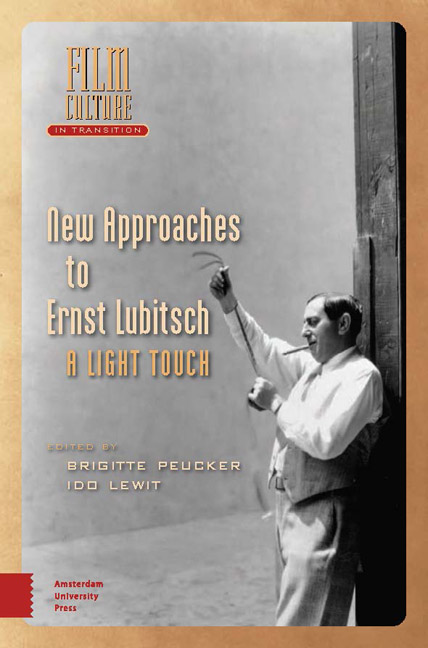1 - Jewishness in Lubitsch’s Milieu Films : The Pride of the Firm and Shoe Palace Pinkus
Published online by Cambridge University Press: 16 April 2024
Summary
Abstract
This essay explores Lubitsch's relationship to Jewishness by examining his milieu films, the comedies of the 1910s set in the Jewish milieu of the Berlin garment industry. What do they reveal? What can they tell us about subsequent developments concerning Jewishness in his career? These milieu films are the most explicitly “Jewish” films of his career. Some post- World War II critics considered these comedies almost anti-Semitic in their depiction of Jewishness. Were they? Lubitsch's personal relation to his own Jewish background and the larger social historical context are relevant here.
Keywords: Milieu films, Konfektion, Jewishness, Jewish humor, “bad boy,” anti-Semitism
In this essay, I shall explore Ernst Lubitsch's relationship to Jewishness by examining two of his surviving “milieu films.” What do they reveal, and what can they tell us about subsequent developments in his career? “Jewishness” is, of course, a complicated topic, as has recently been demonstrated by the editors of and contributors to the volume Rethinking Jewishness in Weimar Cinema. And Lubitsch's relationship to Jewishness was also complicated. “Milieu films,” the German comedies of the 1910s in which he acted (many of which he also directed) were set in the predominantly Jewish milieu of Berlin Konfektion, the garment industry. While these are the most explicitly “Jewish” films of his career, none of the characters in them are ever called Jewish. Nevertheless, contemporary reviews did refer to the characters he played as Jewish, and, in an interview in 1916, Lubitsch made clear that he considered them to be examples of Jewish humor.
Lubitsch's father had come from Russia to Berlin around 1880 and made his fortune in Konfektion. But his father was no poor Jewish peddler from a shtetl in Eastern Europe; he did not speak Yiddish, and he was a successful businessman who raised a family that was solidly upper middle-class—and secular. Although Lubitsch knew a lot about the milieu of Konfektion, it would be wrong to assume any direct autobiographical connection: Lubitsch had worked briefly in his father's business, but he was not interested in such work and was thought to be bad at it.
- Type
- Chapter
- Information
- New Approaches to Ernst LubitschA Light Touch, pp. 33 - 48Publisher: Amsterdam University PressPrint publication year: 2024



